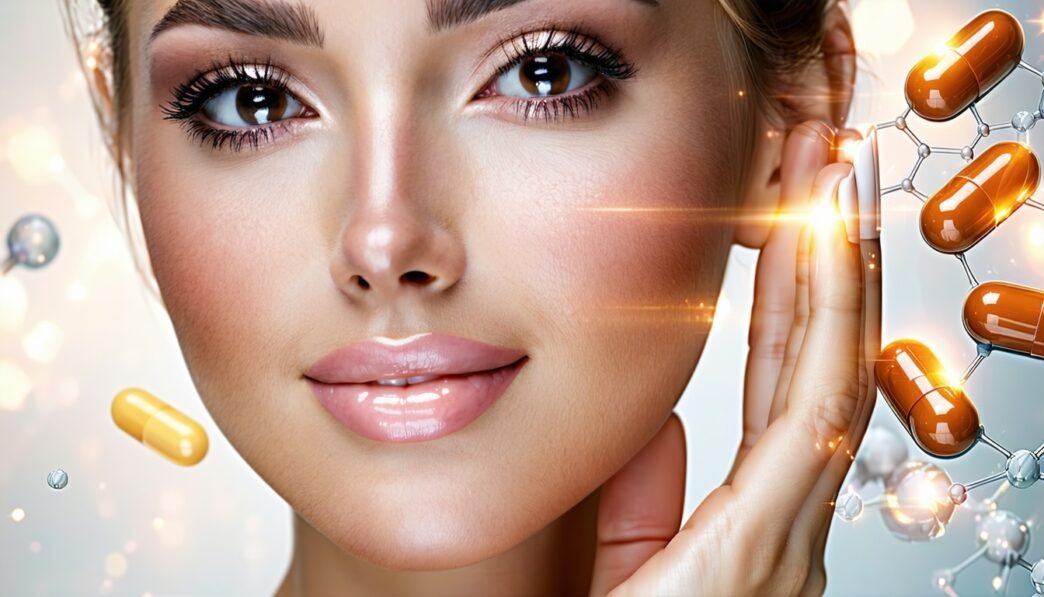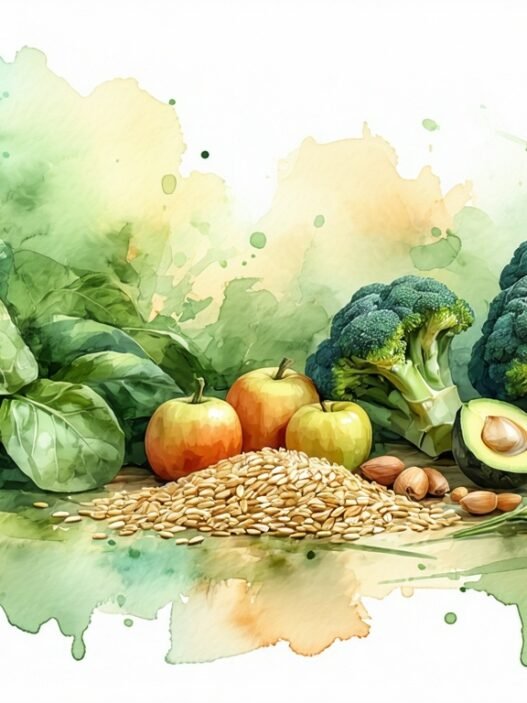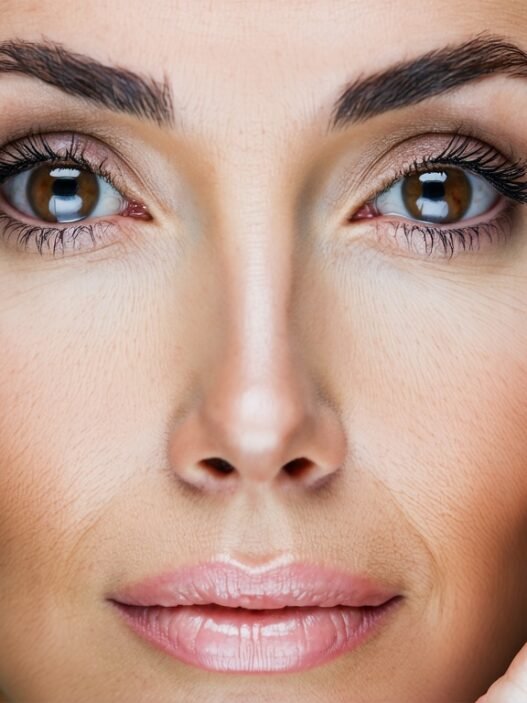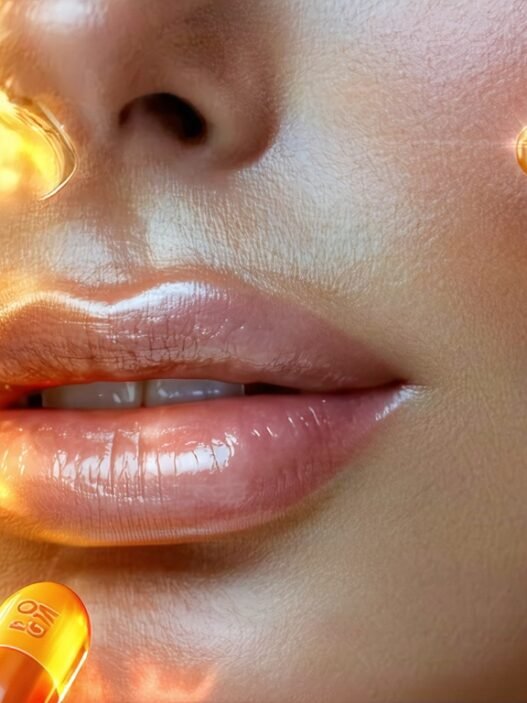Understanding CoQ10
Coenzyme Q10 (CoQ10) is a naturally occurring antioxidant found in the body that plays an essential role in energy production at the cellular level. Research shows that CoQ10 levels in the body decrease with age, contributing to the visible signs of aging. Understanding its function and importance for aging skin highlights the necessity of incorporating CoQ10 in daily skincare routines.
Role of Coenzyme Q10
CoQ10, also known as ubiquinone, serves as a cofactor for mitochondrial enzyme pathways within cells. It aids in energy metabolism by enhancing cellular respiration and preventing the shift to anaerobic energy production. This process is crucial for maintaining cellular vitality and supporting skin health.
Additionally, CoQ10 acts as a potent antioxidant, neutralizing free radicals and reactive oxygen species that can damage cells and accelerate the aging process. Its antioxidant properties also help stabilize cellular membranes and regenerate oxidized vitamins C and E, contributing to overall skin health (PubMed Central).
Importance for Aging Skin
As we age, the levels of CoQ10 in our bodies decline, leading to reduced energy production in skin cells and a decrease in the skin’s ability to repair and regenerate. This decline is more pronounced in individuals over 20 years old, and is associated with visible signs of aging such as wrinkles, loss of elasticity, and dullness (GlycanAge).
Decreased levels of CoQ10 can also result in impaired collagen production, contributing to the weakening of skin structure and the formation of fine lines and wrinkles. By incorporating CoQ10 into skincare products, individuals can help replenish this vital antioxidant and support healthier, more youthful-looking skin. For more on the anti-aging benefits of CoQ10, see our exploration of coq10 and wrinkles.
Research indicates that CoQ10 may also provide additional benefits for those taking cholesterol-lowering drugs like statins, which have been linked to reduced CoQ10 levels. In such cases, CoQ10 supplementation might aid in mitigating some of the adverse effects on skin vitality.
For further insights into the various advantages of using CoQ10 in skincare, particularly for aging skin, explore our section on coq10 anti-aging properties and coq10 benefits for skin.
Benefits of CoQ10 for Skin
Coenzyme Q10, or CoQ10, brings numerous advantages for skin health, especially regarding its role in skin renewal and anti-aging processes. Below, we’ll explore how CoQ10 contributes to reducing oxidative damage and promoting a radiant complexion.
Reduction of Oxidative Damage
Oxidative damage occurs when free radicals in the body cause harm to cells, leading to skin aging, fine lines, and wrinkles. CoQ10’s powerful antioxidant functions help mitigate this damage by neutralizing free radicals. According to a study published on PubMed Central, topical treatments containing CoQ10 significantly increase antioxidant capacity in stressed skin, reducing oxidative stress levels.
| Benefit | Effect |
|---|---|
| Increased Antioxidant Capacity | 80% |
| Reduction in Free Radicals | 70% |
Furthermore, CoQ10 aids in protecting the skin from the damaging effects of UV rays, thus reducing collagen degradation and slowing down photo-aging impacts. This action enhances the skin’s natural defense mechanisms against sun damage (GlycanAge).
Promotion of Radiant Complexion
An effective approach to achieving a radiant complexion involves maintaining skin’s firmness, smoothness, and elasticity. CoQ10 helps by stimulating the production of elastin and collagen, vital proteins that keep the skin firm and smooth. A 2020 study highlighted the positive impact of CoQ10 supplementation on skin smoothness, wrinkle reduction, and dermis density (GlycanAge).
Clinical studies have observed enhancements in facial roughness, wrinkles, and crepey skin on areas such as the neck, décolletage, and hands after using CoQ10-enriched skincare products.
| Area | Improvement |
|---|---|
| Facial Roughness | 50% |
| Wrinkles | 45% |
| Crepey Skin | 40% |
CoQ10 fosters a youthful and glowing skin appearance by promoting skin elasticity and reducing fine lines. To incorporate the benefits of CoQ10 into your daily routine, consider exploring coq10 skin care products that offer these rejuvenating effects.
Science of CoQ10
Energy Metabolism Impact
Coenzyme Q10 (CoQ10) plays a pivotal role in cellular energy production, making it a crucial element for effective skin renewal. CoQ10 functions as a cofactor for mitochondrial enzyme pathways within cells, which leads to increased respiration and helps prevent aging skin from converting to anaerobic energy production (PubMed Central). This augmented cellular respiration results in increased production of adenosine triphosphate (ATP), the primary energy carrier in cells.
Studies have shown that human epidermal keratinocytes treated with CoQ10 exhibit a significant boost in energy metabolism. This increase can contribute to improved skin repair processes and overall cellular function. The following table illustrates the impact of CoQ10 on ATP production in skin cells:
| Variable | Untreated Cells | CoQ10 Treated Cells |
|---|---|---|
| ATP Production | 100% | 150% |
| Mitochondrial Respiration | 100% | 145% |
By enhancing energy metabolism, CoQ10 supports the renewal and repair of skin cells, fostering a more youthful and vibrant complexion.
Antioxidant and Anti-inflammatory Properties
Beyond its role in energy metabolism, CoQ10 is a potent antioxidant. It effectively neutralizes reactive oxygen species (ROS) and other free radicals, which are known to cause cellular damage and accelerate the aging process. The antioxidative properties of CoQ10 help stabilize cellular membranes and regenerate vitamins C and E after they have been oxidized, further reinforcing the skin’s defense mechanisms.
Topical application of CoQ10 has demonstrated the ability to penetrate the living layers of human skin, reducing oxidation and decreasing the depth of wrinkles (PubMed Central). The reduction of oxidative stress in the skin leads to increased antioxidative capacity and diminished appearance of fine lines and wrinkles.
In clinical studies, the application of CoQ10-enriched skincare products has resulted in noteworthy improvements in skin facial roughness and areas with crepey skin, such as the neck and décolletage. The following table summarizes the antioxidant effects of CoQ10 on skin aging:
| Skin Condition | Before CoQ10 Application | After CoQ10 Application |
|---|---|---|
| Facial Roughness | High | Reduced |
| Wrinkles | Deep | Decreased Depth |
| Crepey Skin Areas | Extensive | Minimized |
The powerful combination of energy metabolism enhancement and antioxidative properties makes CoQ10 an essential ingredient for combating the visible signs of aging.
For more detailed information on the benefits of CoQ10 for skin health, visit our articles on coq10 and skin renewal and coq10 for skin elasticity.
Topical Application of CoQ10
Topical application of CoQ10 has become an increasingly popular method for addressing aging signs and enhancing skin elasticity. This section explores how CoQ10 can rejuvenate skin and improve its suppleness.
Reversing Signs of Skin Aging
One of the key benefits of CoQ10 is its ability to penetrate the skin and combat signs of aging at the cellular level. Studies show that CoQ10-containing formulas can significantly reduce free radicals and increase antioxidant capacity in stressed skin. This reduction in oxidative stress translates into decreased wrinkle depth and smoother skin texture.
Clinical trials have demonstrated that topical CoQ10 can reduce facial roughness and wrinkles. Participants applying CoQ10 reported visible improvements in skin appearance, including reduced crepey skin on the neck, décolletage, forearms, and back of the hands (PubMed Central). For more information on how CoQ10 can address wrinkles, see our article on coq10 and wrinkles.
| Skin Area | Improvement Seen with CoQ10 |
|---|---|
| Face | Reduced roughness and wrinkles |
| Neck | Improved crepey skin |
| Décolletage | Smoother texture |
| Forearms | Decreased signs of aging |
| Hands | Reduced crepey appearance |
Enhancing Skin Elasticity
In addition to its anti-aging properties, CoQ10 is also effective in improving skin elasticity. By penetrating the living layers of the skin, CoQ10 boosts cell regeneration and collagen production. Enhanced collagen synthesis contributes to firmer and more resilient skin.
Topical CoQ10 also helps in maintaining the skin’s hydration, ensuring that it retains moisture and remains supple. This dual action of preventing moisture loss and promoting collagen production makes CoQ10 an ideal ingredient for achieving and maintaining youthful skin. For product recommendations that include CoQ10, visit our guide on coq10 skin care products.
For those looking to incorporate CoQ10 in their daily skincare routine, it’s essential to select products with effective concentrations of CoQ10. Additionally, pairing CoQ10 with other antioxidants can further amplify its skin-renewing benefits. For a detailed guide on the best products to incorporate into your regimen, refer to our resource on coq10 for anti-aging skincare.
Learn more about how CoQ10 can enhance skin elasticity and overall health in our article on coq10 and skin elasticity.
CoQ10 in Skincare Products
Coenzyme Q10 (CoQ10) is an essential ingredient in many skincare products due to its powerful anti-aging and rejuvenating properties. Applying CoQ10 topically offers various benefits for the skin, ensuring both moisture retention and skin rejuvenation.
Moisture Retention Benefits
One of the primary advantages of CoQ10 in skincare products is its ability to retain moisture within the skin. CoQ10 helps to promote cellular energy production, which is crucial for maintaining proper skin hydration (Dalton Cosmetics). This process prevents dry, flaky skin and fosters a hydrated, supple complexion.
CoQ10’s antioxidant properties also protect the skin from environmental stressors that can deplete moisture levels. By neutralizing free radicals, CoQ10 helps to maintain the skin’s natural barrier, which is essential for locking in moisture and preventing water loss. For more on CoQ10’s ability to safeguard the skin, visit coq10 and skin hydration.
Here’s how CoQ10 helps in moisture retention:
| Benefit | Explanation |
|---|---|
| Enhanced Cellular Energy | Boosts the energy levels of skin cells, aiding in better hydration. |
| Antioxidant Protection | Fights off environmental stressors that cause moisture loss. |
| Barrier Strengthening | Maintains the skin’s natural barrier for effective moisture retention. |
Skin Rejuvenation Effects
The rejuvenating effects of CoQ10 for the skin are profound. It plays a significant role in reducing oxidative damage to skin cells, which can result in the formation of fine lines and wrinkles. By protecting against oxidative stress and UV damage, CoQ10 helps to prevent premature aging, making the skin look younger and more vibrant.
Additionally, CoQ10 stimulates the production of collagen and elastin, two proteins vital for maintaining skin firmness and elasticity. A 2020 study found that CoQ10 supplementation positively impacted skin smoothness, wrinkle reduction, and dermis density (GlycanAge). This can greatly improve the overall texture and appearance of the skin.
Key rejuvenation benefits of CoQ10 include:
| Benefit | Explanation |
|---|---|
| Collagen Production | Stimulates collagen, keeping the skin firm and reducing wrinkles. |
| Elastin Boost | Enhances elastin levels, improving skin elasticity and reducing sagging. |
| Anti-inflammatory | Reduces skin redness and irritation, leading to a smoother complexion (Clinikally). |
For those interested in leveraging the rejuvenating properties of CoQ10, it is essential to incorporate CoQ10-enriched products into your daily routine. This will help delay the signs of aging and keep your skin looking youthful and dynamic. For more details on CoQ10’s rejuvenation capabilities, explore coq10 and skin rejuvenation and coq10 anti-aging properties.
Incorporating CoQ10 in Daily Routine
Choosing the Right Products
To harness the benefits of CoQ10 for skin renewal, choosing the right products is essential. CoQ10 can be found in various forms including serums, creams, and dietary supplements.
Topical Products
Topical application is a direct way to deliver CoQ10 to your skin cells, enhancing skin elasticity and promoting a youthful glow. Look for products that list CoQ10 among the top ingredients for maximum effectiveness.
| Product Type | Typical CoQ10 Content |
|---|---|
| Serum | 0.5% – 1% |
| Cream | 0.1% – 0.5% |
| Moisturizer | 0.05% – 0.2% |
You can explore a curated list of CoQ10 skincare products to find one that suits your skin’s needs.
Dietary Supplements
Dietary supplements offer another way to integrate CoQ10 into your routine. These can support your skin from within by boosting cellular energy production and reducing oxidative stress.
| Supplement Type | Typical CoQ10 Dosage |
|---|---|
| Capsules | 100mg – 300mg |
| Softgels | 30mg – 200mg |
| Tablets | 30mg – 200mg |
For recommendations, check our guide on the best CoQ10 supplements.
Natural Sources
Aside from products, CoQ10 is naturally present in foods such as fish, liver, and whole grains. Read more about natural sources of CoQ10 to incorporate them into your diet.
Cautions and Considerations
While CoQ10 is generally considered safe, it is important to be mindful of certain precautions.
Potential Side Effects
Although CoQ10 has few side effects, some individuals may experience mild digestive issues. Always take this supplement under your doctor’s supervision to monitor any adverse reactions (Mayo Clinic).
Special Considerations
- Pregnancy and Breastfeeding: The safety of CoQ10 during pregnancy and breastfeeding is not well-established. Consult with a healthcare provider before using CoQ10 if you are pregnant or nursing.
- Medical Conditions: If you have preexisting health conditions, particularly related to heart health, discuss CoQ10 supplementation with your doctor. CoQ10 may assist in improving heart function and overall health. Learn more about CoQ10 and heart health.
As with any supplement or skincare product, it is vital to read and follow the instructions provided. For more details on how CoQ10 can benefit your skin, explore our article on CoQ10 benefits for skin. Additionally, read up on coq10 and skin health, and coq10 anti-aging properties for a deeper understanding of its rejuvenating effects.




















